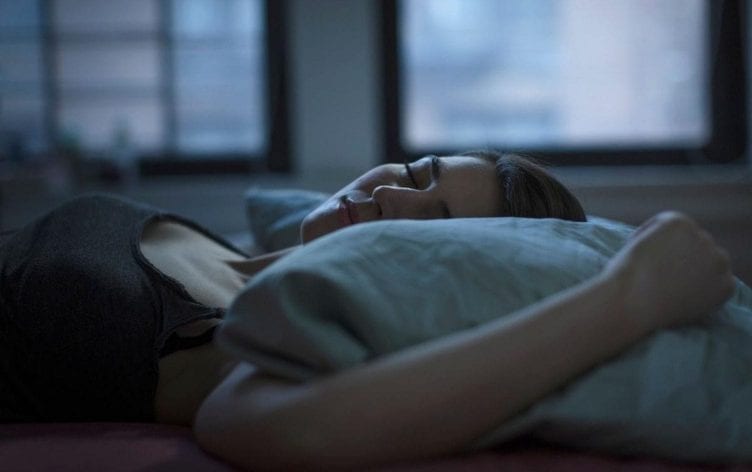
5 Bedtime Habits to Help You Sleep Better
Good, quality sleep is truly nature’s best medicine. Not only does sleeping soundly help you feel your best in the short-term (we’re all more focused and energized after a good night’s sleep), but sleeping 7–8 hours every night also offers long-term health benefits.
“When you’re getting good, consolidated sleep, you’re more active and productive during the day,” says Dr. Sameer Khanijo, a pulmonologist at Northwell Health who helps patients with sleep issues. Over time, being more active, productive and energized can help lower blood pressure, blood sugar and stress, slashing your risk of serious health problems like diabetes and heart disease. “That’s really the crux of why sleep is important,” Khanijo says.
So, then the question becomes: How can you make your sleep better?
The answer is simple: Healthy bedtime habits.
To increase your odds of falling asleep come bedtime — and reaping all the health benefits sleep offers — give these nighttime habits a try.
PUT AWAY ELECTRONICS
Not only does the stress of engaging on social media and answering emails make it hard to unwind, but the blue light from your phone and computer screen can mess with your brain. “If you’re exposing yourself to really bright lights, your body is going to think it’s daytime, and it’s going to try to stay awake,” says Khanijo.
To help your brain and body get ready for sleep, stop using electronics at least 30–60 minutes before bed. This may be a struggle at first, as many of us are attached to our phones, but replacing your tech time with a relaxing activity like reading a book may help limit the temptation to check email or social media. (More on relaxing activities shortly.)
AVOID CAFFEINE, ALCOHOL AND LARGE MEALS
Digesting caffeine, alcohol, and/or a heavy meal interferes with your body’s normal sleep processes, according to Khanijo. So, avoid caffeine and alcohol in the evening (as caffeine and alcohol affect people differently, you may have to experiment to find the right stopping point for you), and try to finish your dinner at least three hours before bed.
That said, if your stomach starts rumbling, it’s OK to have a light snack 30–45 minutes before you hit the hay, according to Khanijo.
Try snacks with sleep-promoting tryptophan (an essential amino acid that makes serotonin and melatonin, chemicals involved with the sleep process), like Greek yogurt with berries, a banana with peanut butter or toast with almond butter.
DO SOMETHING RELAXING
To help your body and brain shift from ‘go-mode’ to ‘sleep-mode,’ find a relaxing — and, ideally, tech-free — activity you can do at least 30–60 minutes before bed. “For some people it’s reading a book or a magazine, for some people it’s yoga, and for some people it’s just sitting and talking about their day with a loved one,” Khanijo says. Breathing exercises, journaling, drinking a warm cup of caffeine-free tea, and taking a warm bath or shower are other great options that can help you relax before bed.
TURN DOWN THE TEMPERATURE
As you wind down, your body temperature drops, which signals to your body it’s time to sleep. But, if your bedroom is too hot — or you exercise too close to bedtime — your body may struggle to cool off, making sleep hard to come by. To encourage sleep, avoid intense exercise right before bed, and do whatever you have to do to optimize your bedroom temps. “Most people tend to do well when their bedroom temperatures are somewhere between 60 and 70 degrees [Fahrenheit],” Khanijo says.
If your room is too hot, Khanijo suggests trying air conditioners and cooling mattresses or bedding and/or wearing lighter clothing.
READ MORE > IS SLEEPING NAKED BETTER FOR YOUR HEALTH?
STAY OUT OF BED UNTIL YOU’RE READY TO SLEEP
Your bedroom should only be used for sleeping and sex — not for working, watching TV or exercising. “Make sure your body understands that your bed is where you’re going to sleep,” Khanijo says. “You create that association in your mind so that when you see the bed you become tired.”
This means, if you can’t sleep, resist the urge to watch TV or scroll through social media in bed. Instead, get out of bed and go into another room to unwind until you’re ready to try falling asleep again, Khanijo says.
WHAT TO DO IF YOU STILL CAN’T SLEEP
If you’re practicing healthy bedtime habits but you still can’t sleep, talk to your primary care doctor or a sleep specialist to see if there’s anything else you can do. “Maybe there’s something else that’s preventing you from getting to sleep,” Khanijo says. Your doctor can help point you in the right direction.
Also, consider keeping a sleep diary. Write down what time you think you fell asleep, how many times you woke up during the night, what time you got up in the morning, and any other details about your evening routine that might affect sleep. “You can look back and see what things helped [you sleep] and what didn’t,” Khanijo says. For example, maybe you tossed and turned the night you topped off a large dinner with chocolate and coffee for dessert. Or, maybe you woke up repeatedly the night before a big work meeting.
Unlock an experience that’s like having a dietitian, trainer and coach at your fingertips. Sign up for Premium for expert guidance and tools to help you reach your personal health goals.





